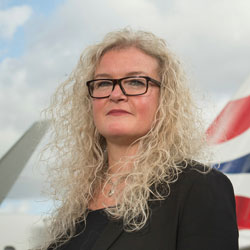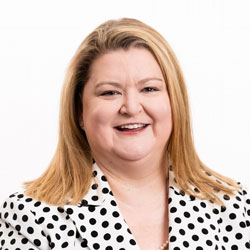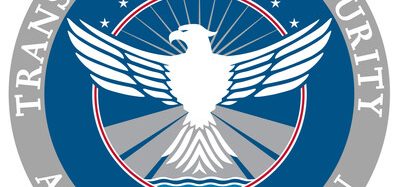Sourcing advice for women aspiring to join the aviation industry
- Like
- Digg
- Del
- Tumblr
- VKontakte
- Buffer
- Love This
- Odnoklassniki
- Meneame
- Blogger
- Amazon
- Yahoo Mail
- Gmail
- AOL
- Newsvine
- HackerNews
- Evernote
- MySpace
- Mail.ru
- Viadeo
- Line
- Comments
- Yummly
- SMS
- Viber
- Telegram
- Subscribe
- Skype
- Facebook Messenger
- Kakao
- LiveJournal
- Yammer
- Edgar
- Fintel
- Mix
- Instapaper
- Copy Link
Posted: 24 February 2020 | Tara Nolan (International Airport Review) | No comments yet
Across many industries, women are striving to reduce the discrepancies between male and female employees, and to encourage young women to follow their ambitions.


International Airport Review spoke to three successful women in aviation to hear their personal experiences of the industry and source advice for aspiring individuals.
  |   |   |
| Alison FitzGerald, Chief Operating Officer, London City Airport | Katie Cooper, Head of Transformation, Melbourne Airport, and Director, Australian Airports Association | Myojung Koh, Smart Airport Team Manager, Incheon International Airport |
Alison Fitzgerald: Firstly, I have to say that I have been very fortunate, considering gender hasn’t been an influential factor for me. But, that’s not the case for everyone, and women still face challenges due to their gender within many industries. I don’t believe I have experienced this during my career, even though I’ve always worked in roles stereotypically undertaken by men. I may have been outnumbered, but I haven’t let that be an issue or hold me back.
Don’t define yourself by characteristics like gender, define yourself by your ability.
I joined London City Airport as CIO in 2014 and became COO in 2016. Being female certainly hasn’t been a challenge here. Over a third of our workforce is female and women are represented throughout the airport – from security to the ramp, the cockpit to the control tower. In fact, there are a number of women in senior positions. While that should be the norm, we’re proud of our culture and diversity in what is traditionally a male-dominated industry.
That being said, I think aviation as an industry could still be more diverse – and not just by gender. It’s really important for us to understand our customer needs and deliver great customer experience. How can we do that if our workforce is not representative? I think the industry has recognised this and it’s good to see major businesses backing initiatives to improve things. At London City Airport, we support a number of such initiatives and run programmes of our own in the local area. Our ‘Women in Aviation’ competition seeks to inspire young women, while our ‘STEM in Aviation’ event reaches students across East London.
This is a great industry for anyone looking to build a career. The opportunities are vast and varied, which is why I love what I do. I tell women aspiring to do the same to go for it! Don’t define yourself by characteristics like gender, define yourself by your ability. There are some great role models out there, so don’t be afraid to reach out and ask for advice.
Katie Cooper: Years ago, I was asked how I managed to beat the boys club. The truth is that I have never really tried.
Find those who will support you along the way – your own board of advisors
I’ve always held the view that if you work hard and deliver results, you will be rewarded. You need to create opportunities for yourself and for others. Sometimes beg for forgiveness rather than ask for permission. Be proud and confident of what you bring to the table with your perspective, experience and knowledge. Own your career – no one else will do it for you.
I encourage women to take the road less travelled and pursue careers in the technical and operational areas of aviation. My work in operations taught me so much about the industry and I’m a better leader and manager because of it. As an industry, we need to get better at promoting these roles to women.
My advice to those just starting out would be to use your time well and take stock of your achievements on a regular basis. Be deliberate about the opportunities you pursue and think about the next three roles, not just what is in front of you now. It can be beneficial to make a lateral career move for experience or learning opportunities, which sets you up even more strongly for a vertical move.
Find those who will support you along the way – your own board of advisors. Look for people who will tell you the truth, inspire you and challenge your thinking. These people may change as your career develops, but together they’ll help you keep your focus as you work to achieve your goals.
Myojung Koh: The airport industry has always been a thrill for me. It is a place where I can meet a variety of people, whilst be connected to the wider world. In addition, for me personally – who was agonising between strategic consulting and specific industries – the airport appeared as a testbed that could realise new ideas and witness reactions in real time. I, therefore, entered the aviation industry to gain expertise and excitement.
Find the area where your weakness can work as an advantage and use this to thrive
Airports are required to cooperate with industry stakeholders, including government and airlines. Initially, I was not used to meeting or negotiating with others who had different agendas and interests. Instead of pursuing change, experienced stakeholders disregarded innovation according to national security principles. It was a challenge for me – I had to negotiate in a situation where there was no room for negotiation. But I responded calmly with flexibility, rather than with confrontation.
In my own experience, I felt like my weakness was my personality trait that tries to avoid conflict. However, this ‘weakness’ unexpectedly worked as an advantage, and led to good results. Therefore, I would like to tell women who aspire to work in the aviation industry to find the area where your weakness can work as an advantage and use this to thrive.
Issue
Related topics
Recruitment and training, Regulation and Legislation, Workforce
Related airports
Incheon International Airport (ICN), London City Airport (LCY), Melbourne Airport (MEL)

















